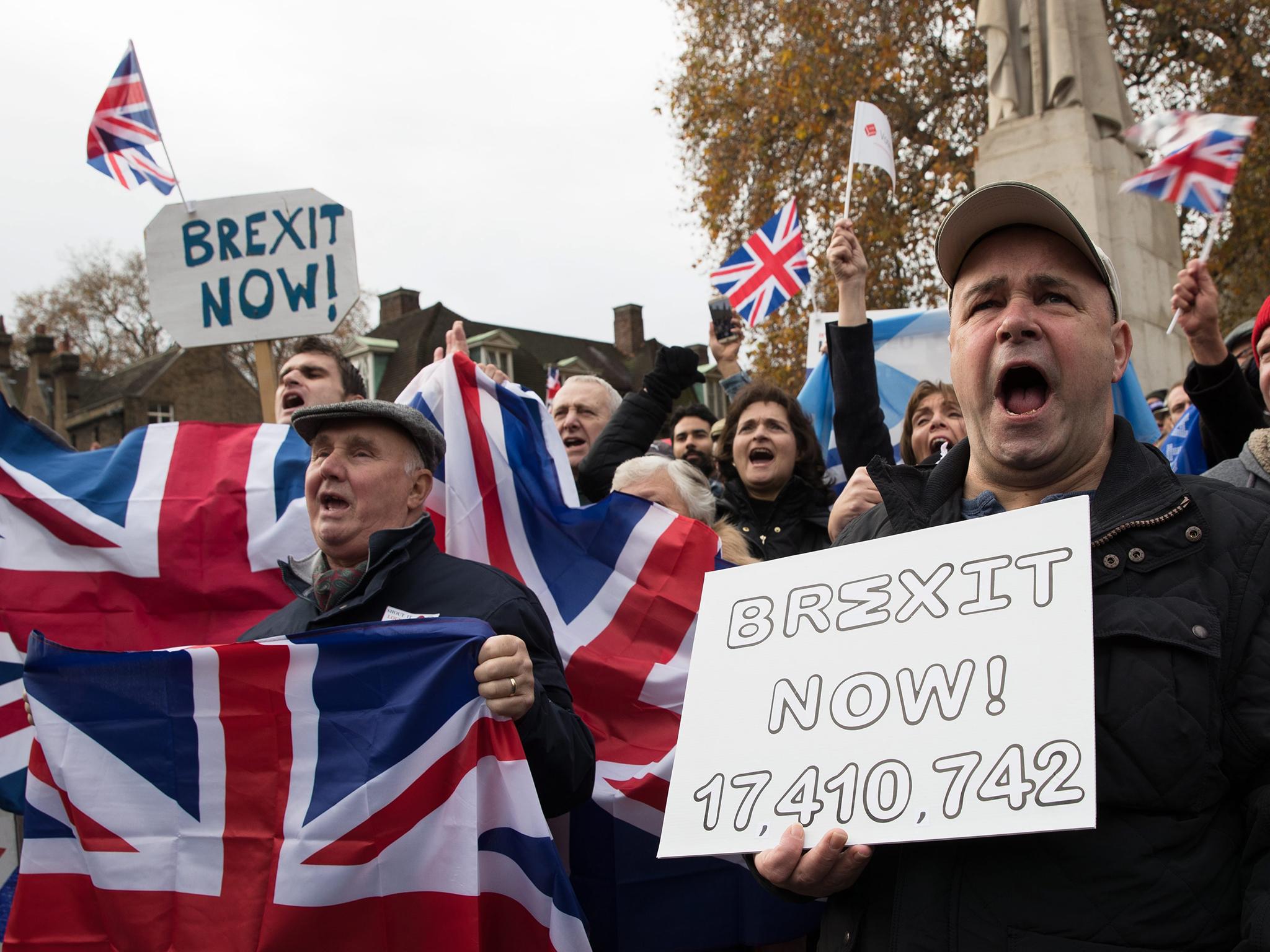Brexit: Britons will not accept being financially worse off by EU withdrawal, poll indicates
Just 1 in 20 people believe they will be financially better off outside the EU

Your support helps us to tell the story
From reproductive rights to climate change to Big Tech, The Independent is on the ground when the story is developing. Whether it's investigating the financials of Elon Musk's pro-Trump PAC or producing our latest documentary, 'The A Word', which shines a light on the American women fighting for reproductive rights, we know how important it is to parse out the facts from the messaging.
At such a critical moment in US history, we need reporters on the ground. Your donation allows us to keep sending journalists to speak to both sides of the story.
The Independent is trusted by Americans across the entire political spectrum. And unlike many other quality news outlets, we choose not to lock Americans out of our reporting and analysis with paywalls. We believe quality journalism should be available to everyone, paid for by those who can afford it.
Your support makes all the difference.British people will not accept a Brexit which leaves them financially worse off, research has suggested.
The finding comes amid ongoing debate over whether a ‘Hard’ or ‘Soft’ Brexit should be enacted when the UK leaves the European Union. The study, conducted by YouGov for Open Britain, found 62 per cent of Labour voters and 59 per cent of people living in the north would not be willing to incur any financial penalty at all by leaving the EU.
Just one in 10 people would be prepared to lose more than £100 a month for the cause.
In addition, most Britons did not expect to lose money at all, with one in five saying they feel their financial situation will not be impacted on by Brexit at all. Just one in 20 believe they will be better off.
Former Labour leader Ed Miliband said: "The Government will rightly be subject to an almighty backlash from Leave voters if it makes decisions about our economic future that make them far poorer and leaves less money for public services.
“Having voted for a better future, this would be the ultimate betrayal. The onus, therefore, is on the Government to ensure a Brexit that is fair to working people. Both Remain and Leave voters share the desire to put our economy first. The Government must protect our economic future and address the deep concerns about our unequal country that drove Brexit. Parliament and the country will hold them to account in the weeks and months ahead."
Peter Kellner, former President of YouGov said: “This is the first poll to look specifically at whether Leave voters are willing to accept any financial loss as a result of Brexit.
“The answer is that few are prepared to. And given that very few expect to be worse off, the Government could have real difficulty in delivering a Brexit that satisfies those who voted for it.”
Much uncertainty remains regarding the nature of EU withdrawal, including whether the UK will retain access to the single market and keep freedom of movement. Earlier this week, Prime Minister Theresa May announced what many interpreted as a U-turn when she conceded she will outline her Brexit plans in more detail before she triggers Article 50, the formal processes through which the UK leaves the EU.
In his first Autumn Statement since the 23 June referendum vote, Chancellor Philip Hammond revealed borrowing will balloon by £122bn over a six-year period following a Brexit budget shortfall – £58.7bn of which has been caused because of the uncertainty created by EU withdrawal.
Of that £58.7bn, some £16bn would be caused by lower immigration, the Office for Budget Responsibility has said, because an influx of migrants would have delivered an economic boost.
In addition to budget shortfalls, further costs may be incurred by EU withdrawal.
Earlier this month Brexit Secretary David Davis said one possibility the Government is considering is making payments to the EU in order to retain access to the single market.
He was asked to clarify his stance by Labour MP Wayne David in the House of Commons: “Will the Government consider making any contribution in any shape or form for access to the single market?”.
Mr Davis replied: “The major criterion here is that we get the best possible access for goods and services to the European market - and if that is included in what you are talking about, then of course we will consider it.”
Join our commenting forum
Join thought-provoking conversations, follow other Independent readers and see their replies
Comments